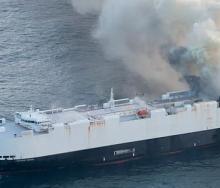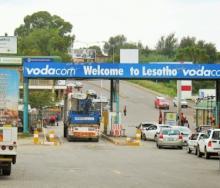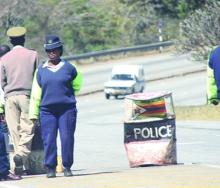Transnet’s 2025/26 tariff increase application is “uncalled-for” and will hurt the “already collapsing” Durban port, Road Freight Association (RFA) CEO Gavin Kelly has warned.
“Let’s hope that the National Transport Regulator, recently called into life through a brand-new piece of legislation, will look at this application for an increase very closely,” Kelly said in a statement on Wednesday.
The tariff increase application includes:
- 6.67% on deep sea container empties
- 4.57% on coastwise containers and transhipments
- 6.69% on container empty transhipments
- 4.57% on breakbulk imports and exports
- 4.57% on dry bulk imports and 7.90% on dry bulk exports
- 4.57% on liquid bulk import and export
- 4.57% on automotive imports and exports
“From the perspective of RFA members, who battle on a daily basis to get containers into and out of our ports, more so the Port of Durban, these increases are uncalled-for and will further hurt our already collapsing port,” Kelly said.
“What are the increases for? Equipment and infrastructure upgrade, repair and maintenance, or just ‘operational matters’ like administration, salaries and the like?”
Kelly also criticised the port’s truck booking system, asking where it had developed the idea that it was successful.
“The association has received numerous comments and complaints and calls for help to resolve the situation at the Port of Durban.”
He said a recent article in Engineering News, in which the system was touted as “successful”, had led to an urgent plea from members who said the article was not a true reflection of the daily challenges facing truckers.
“They noted that the system did not consider the staging time at Terminal A Check Facility. It would be both interesting and beneficial to have the time recorded from the A Check Gate ‘in’ to Terminal Gate ‘out’, as this will provide a true reflection of how long it takes to service one vehicle at a time. It was further noted that the terminal only measures the time once the vehicle leaves the A Check area,” Kelly said.
“Transporters still struggle with the booking system, as booking slots remain ‘not available’ and many hours are wasted waiting for slots. This means that where trucks are not being allocated slots, the statistics become distorted as these do not show the problem (delays/extended time) due to the terminal keeping the vehicle outside its working area.”
He said fewer available slots meant fewer vehicles entering the port precinct, which meant fewer vehicles had to be serviced within a shift, which showed as ‘improved productivity’ within the terminal, while in reality this was not the case.
“Fewer trucks against the terminal equipment availability shows productivity improvement, but fewer movements are being done in totality. Less cargo is moved,” Kelly said.
He said Transnet’s “productivity improvement” claims were not possible as the terminal communicated equipment shortages and challenges on a regular basis.
“While it sounds fantastic that slots are made available 60 hours in advance – as opposed to the previous 24 hours advance release period – the reality is that the number of slots available in these 60 hours is not enough to accommodate the volumes of exports/imports that need to access the facility during the 60 hours,” Kelly added.
“Simply put, those trucking companies using the Port of Durban on a daily basis have not seen any progress in respect of operational efficiencies at the terminal.”













